Pool dispensers: purpose and use
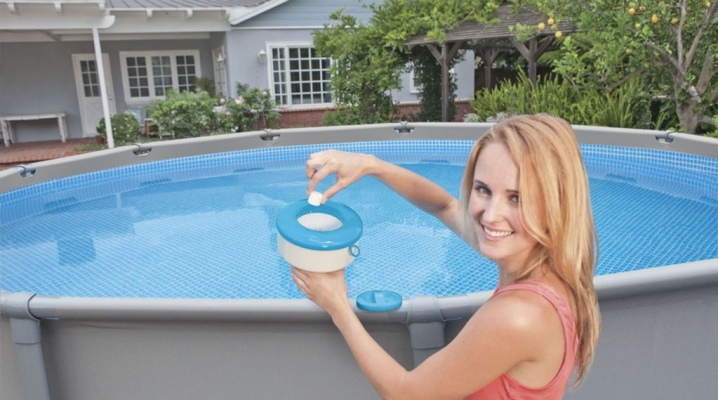
The pool is a fairly large and voluminous open tank, filled with water almost all the time. Everyone knows that its cleanliness must be monitored, and the reservoir itself must be disinfected... All this is necessary so that bathing does not lead to a pastime in a hospital bed.
In the process of caring for a stationary pool, special chemicals are used, which are supplied and sprayed into the water using a dispenser. It is about such a device that will be discussed in the article.
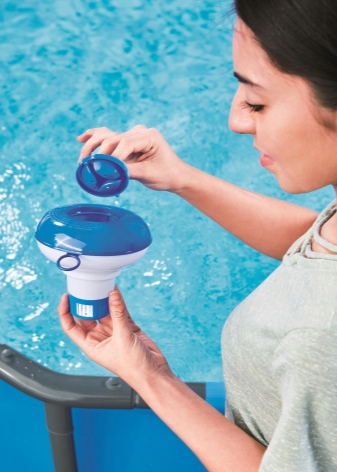
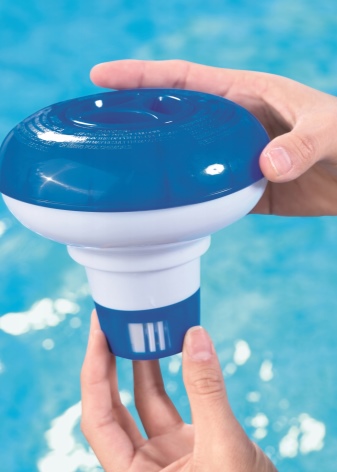
Advantages and disadvantages
The pool dispenser is a special equipment, the main purpose of which is the uniform supply of disinfectants to the water tank. Since the chlorination of water in the pool is a mandatory process, due to which microorganisms will not appear in an artificial reservoir, and the condition of the liquid will be satisfactory, the presence of such an aggregate is necessary.
The principle of operation of the equipment is as follows:
- the dispenser is connected to the filter of the structure;
- the right amount of a disinfectant is placed inside;
- the dosing hole opens, there is a regulator on the equipment body, which controls the amount of the drug that is supplied to the water;
- the device is placed in a water tank.
Equipment such as a disinfectant dispenser for a pool is characterized by both advantages and disadvantages that the consumer must be aware of.
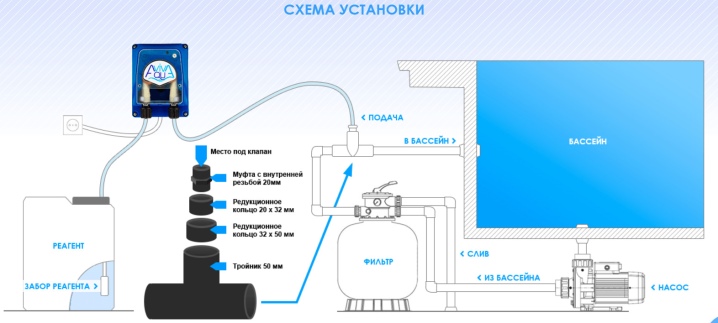
The advantages of the equipment include low cost, uniform and correct supply of disinfectants.
If we talk about the disadvantages of the dispenser, then it is worth noting the following:
- does not control or regulate the pH (acidity) level in water;
- does not respond to changes in external operating conditions and cannot automatically change the amount of reagents thrown into the water, therefore, after rain or other precipitation, it is advisable to manually check the condition of the water using special testers;
- periodically you need to check the device for correct operation.
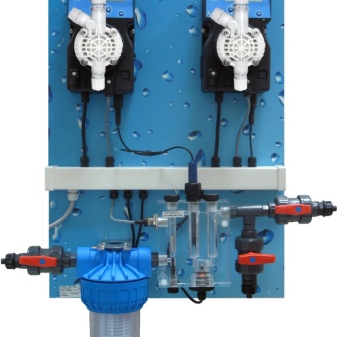
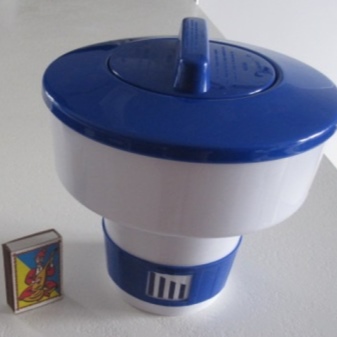
Species overview
Almost every homeowner who has the financial capabilities and free territory installs this structure at home or in the country. And a chlorine dispenser is installed in each pool. Given the demand for equipment, manufacturers produce many different types and models of the device.
There are 2 main types of pool dispensers on the consumer market.
- Float. A floating device is the most straightforward device. It does not connect to any structures of the pool, but simply sinks into the water tank. Previously, of course, you need to put tablets in it, which will gradually dissolve and wash out with water from the device. As for the cost, the float dispenser is considered a budget option. The most popular is the model Aqua, designed for 5 tablets weighing 20 grams and 75 mm in diameter. And also the products of the Intex company are in demand. For example, the 29041 model is one of the most frequently purchased.
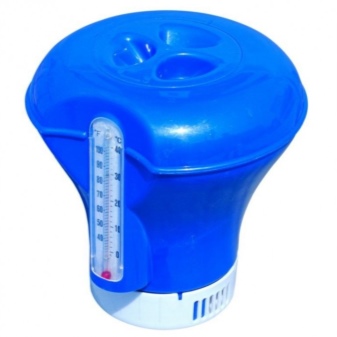
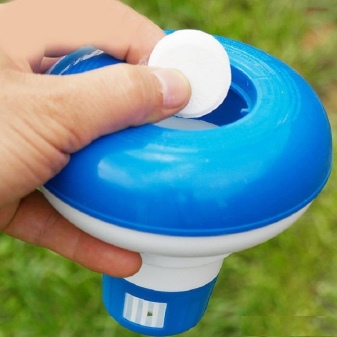
- An electronic device that is also called automatic. The principle of operation of an automatic dispenser is different from that of a float. To begin with, it connects to the tank's circulation circuit. The device is able to independently determine the level of concentration of chemical additives in water and its composition. Based on these data, the automatic dispenser determines the required amount of disinfectant.
Such a dispenser is characterized by the presence of additional functionality, for example, determining the pH level in water. The equipment is quite expensive, and only professionals should deal with its connection.
Among all existing models of such dispensers, the most popular are automatic dispensers DDS Evolution from Aqua and DDS Evolution plus.
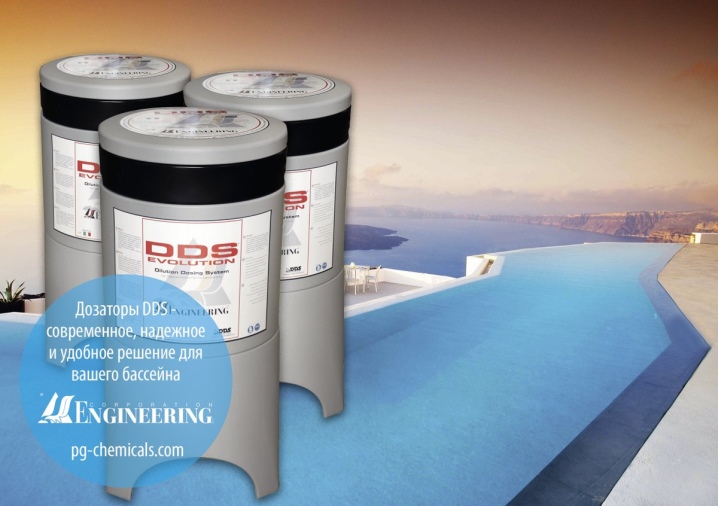
How to choose?
The choice of a dispenser for a pool is a rather serious matter, which must be approached responsibly. The health and well-being of bathers depends on the state of the water in the artificial reservoir.
As noted, there are 2 types of dispensers: float and automatic... Each type has its own selection criteria.
Choosing a dispenser-float, you need to be guided by:
- the volume of the tank in which the device will be placed;
- the diameter of the tablets that will fit into the body of the device;
- the presence of additional functions, for example, the ability to regulate the supply of a disinfectant;
- the presence of a thermometer, which will allow you to constantly monitor the temperature of the water.
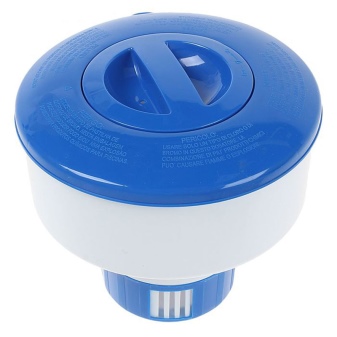
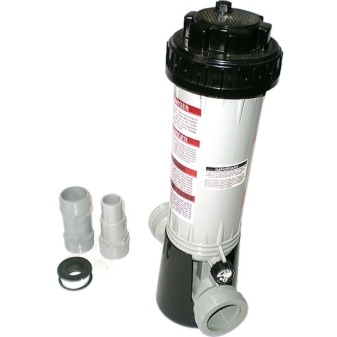
An automatic dispenser is a rather expensive thing, and the choice must be taken very seriously. Since such systems are characterized by the presence of additional functionality, it is advisable to consult with a specialist before purchasing and, when choosing a device, take into account:
- purpose;
- are there sensors that monitor the composition of the water;
- maximum working pressure level;
- availability of additional functions.
And also when buying and choosing equipment, pay attention to the manufacturer. It is better to give preference to a well-known brand, even if its products will be more expensive than analogues.
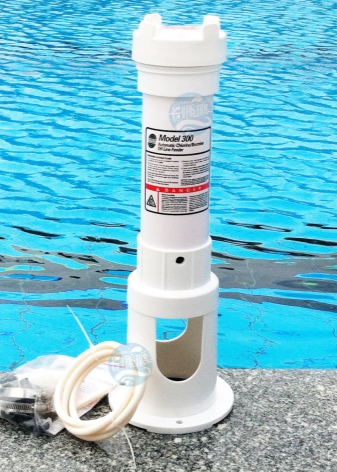
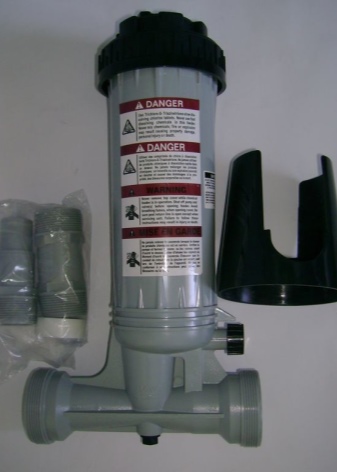
See below for an overview of the dispenser.



































































The comment was sent successfully.